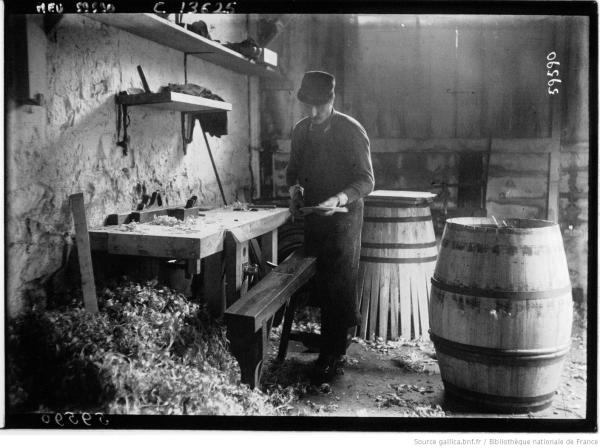
“I wish I had never learned this trade,” said a mechanic in our hearing a few days ago; and impatiently throwing down his tools he left the shop, with his day’s work but half completed. He went out to spend the remainder of the day in idleness, dissatisfied alike with himself and with his employment.
How often do we hear the very same expression and see the same disgust evinced in nearly every trade or avocation with which we are acquainted. Why is it? Is the evil in their occupation, in their employers, or is it in themselves? Some might presume one thing and some another; but we answer:—Mechanics, it is in yourselves.
You have yet to look at your own trade or vocation in its true light. You have yet to love it, and have yet to learn to cherish it as the goose that lays for you the golden egg. You have yet to learn that you must respect your employment and it will bring honors to you. Elevate your trade, and it will in turn raise you a step or two above your present condition.
Above all things, be content with your lot, and never let the demon of discontent take the least hold of you. No matter if the tools you handle are stained and black with the dust and dirt from the work that they perform. No matter if your own hands and face are soiled and begrimed; it is no disgrace.
Instead of looking with dissatisfaction to the reflection of your smutty physiognomy in every bit of reflecting glass on which you cast your eye, look beyond it all—look to the end to which your vocation tends—look to its results, note them well, and be as proud of these results as you would be if it were proof of your own individual prowess and ability.
There are perhaps many occupations that seem to be more desirable to you than your own chosen trade; but did it never occur to you that in these callings that you so much covet there are those that are as dissatisfied as you are, and they would gladly lay aside the clerkship or the pen, and would almost deem themselves free men to labor with their hands, and thus relieve their overtasked and wearied brains?
If you would look to the disagreeable side of all vocations you would find no one of them that would be pleasing to you. But this repugnance must be then put aside, and from your own contented minds you must cast a gleam of sunshine on the circumstances that surround you. The power lies within yourselves, and you must seize upon it and apply it; and by so doing you enliven every stroke that you accomplish in your day’s labor.
You must keep yourself within the bound of your trade, and look for no better or more pleasurable employment than it can give to you. Learn to love it and all connected with it, and you will be surprised at the mighty result this feeling of contentment will produce. Aim high to excel in the present vocation in which circumstances have placed you, and strive to be a credit to your employment. Inform yourself upon all parts of it, and upon all matters connected with it. Study its minutiæ until you are conversant with all its details.
If you are wearied with being the worker, and seek for something higher, look to the different stages of your own employment, or the occupations that are connected with it. Observe them well in all their details before you make the proposed change, and study your own ability to perform; then step out boldly and surely, feeling in your own soul that it is your destiny “to work,” and work well and faithfully in the new calling to which your genius aspires.
You must labor with your heart as well as with your hands, and feel that you are accountable to something beyond the present for all that you do. The great future is to call you to an account, and that you must answer in that day to your own actions, and hope to hear this answer given you, “Well done good and faithful servant.”
Although you may see others, in every trade and profession, repining and discontented, wishing for some change, they scarcely know what, let not their feelings contaminate you; but keep “on, right on,” in the even tenor of your way, feeling that you are working from the true motives of a conscientious life, and that you have not, neither will you feel that you have, yet mistaken your vocation.
American Artisan – December 19, 1866
—Jeff Burks